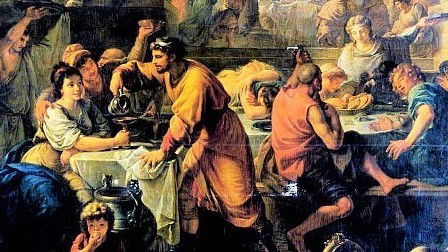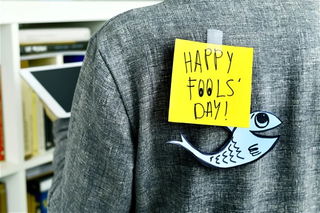- Calendar
- Calendar 2025
- December
- Holiday Christmas Day
Christmas Day
Holiday
Christmas Day, celebrated on December 25, is a cherished occasion for joy, togetherness, and tradition.
In 2024, it falls on a Wednesday, inviting families and friends across the nation to gather, exchange heartfelt gifts, and enjoy festive meals.
As both a religious and cultural holiday, Christmas holds deep significance for many and is observed as a federal holiday, with most shops and businesses closed for the day.
Christmas Traditions
Christmas Day dinner is a delightful celebration of regional and cultural diversity, with menus varying widely across the globe. Classic main dishes include turkey, ham, goose, pork, jambalaya, and the iconic “seven fishes” salad.
These are often paired with side dishes such as mashed potatoes, roasted root vegetables, stuffing, gravy, and cranberry sauce. For dessert, festive favourites like flan, fruit pies, cookies, cakes, and Christmas pudding steal the spotlight.
Traditional seasonal drinks such as eggnog, cider, mulled wine, punch, and hot chocolate add warmth and cheer to the festivities.
Entertainment on Christmas often includes ballets, classic holiday movies, and carol singing. Many communities host nativity plays, pageants, concerts, and tree-lighting ceremonies, bringing neighbours together in the spirit of the season.
Churches are beautifully adorned with nativity scenes featuring baby Jesus, Mary, Joseph, shepherds, angels, and animals. Christmas Eve candlelight or midnight services are a cherished tradition, as are carollers serenading neighbourhoods with beloved holiday tunes.
Homes sparkle with lights and elaborate decorations, both inside and out, with Christmas trees taking centre stage.
For children, the highlight of the day is waking up to find gifts delivered by Santa Claus, who magically visited the night before. Many also embrace the spirit of giving by volunteering at homeless shelters or participating in other charitable activities.
The Christmas season kicks off with Black Friday, the day after Thanksgiving, marking the start of a bustling shopping period. Retailers thrive, with holiday sales contributing around $1 trillion to the economy.
Meanwhile, nearly 17 million cards and packages crisscross the nation, spreading holiday cheer far and wide.

Origins of Christmas
The Date
The ancient peoples of Europe would perform midwinter ceremonies, around the winter solstice, to mark the rebirth of the sun, when the days would start to get longer again. The Scandinavians had Yule, burning a log and feasting for as long as it burned. The Romans followed Saturnalia, a week-long hedonistic feast involving drinking, merrymaking, gift-giving, and also decorating homes with evergreens. People threw standards and norms aside: peasants would take over the city, masters would become slaves, men would dress as women, etc. The feast culminated in the birthday of Mithra, the sun-god, December 25. On December 25, 274, the sun-god was named the principal patron of the Roman Empire and a temple was dedicated to him in the Campus Martius.
Emperor Constantine of the Western Roman Empire converted to Christianity in 313 AD and granted legal recognition to the religion. In an effort to unite his empire, he merged Christian and pagan festivals. The book The Paganism in Our Christianity states: “It was a definite Christian policy to take over the pagan festivals endeared to the people by tradition, and to give them a Christian significance”. The Roman Church held its first official observance on December 25, 336 AD. This is thought to be the first recorded Christmas celebration.
With the rapid spread of Christianity throughout the Roman Empire, Christmas also spread. By the 8th century, most of Europe celebrated it, although Easter was more important. It began to take on more of the merrymaking features of the northern European festivals. In the Middle Ages, Christians attended church to worship on the day, but other rites were far from holy. For example, the poor would go to the homes of rich people to demand their best food and drink, vandalizing the homes of any who refused.

Because of its pagan origins and boisterous customs, the Puritan-led government in England banned Christmas in 1644. The Puritans in New England followed suit, and it was banned from 1659 to 1681. Offenders were liable to a fine of five shillings. However, other parts of the country continued to observe it. In the 19th century, portrayals of Christmas in modern literature and religious and immigrants’ customs gave shape to the popularity of the day for the family. In 1870, it became a federal holiday.
The Tree
The Celts and Druids in Europe saw evergreens as symbols of eternal life and would decorate their homes with them to revive the dying sun of midwinter. They would also burn a yule log. Mistletoe was sacred and held magical powers. In Scandinavia, if enemies met under mistletoe trees, they would lay down their weapons and give each other a kiss of peace. In medieval Germany, people honoured Adam and Eve with a feast on December 24, decorating a paradise tree with apples and wafers. Candles were also used as decorations, symbolizing Christ. German settlers brought the custom to North America, but it was German Prince Albert and Queen Victoria of England who popularized the tradition during the 19th century.
Santa Claus
The idea of Santa Claus mostly came from the legend of Saint Nicholas, a fourth-century bishop who helped the poor and sick. In the late 18th century, Dutch immigrants in New York gathered to commemorate his death. Their nickname for him was Sinter Klaas. Over the decades, the character known as Santa Claus began to take shape, with retail, poems, and illustrations contributing to his well-known image and story.
Some Facts About the Nativity
Jesus was not even born in December. The Jewish month of Chislev (November/December) was a time for cold and rainy weather. Shepherds and their flocks would not have been living outside at night, as the shepherds who received news of Jesus’ birth were doing. Plus, Joseph and Mary travelled to Bethlehem because of a decree by Caesar Augustus, who was particularly hated by the Jews. He would not have wanted to stir up even more anger against him by ordering people to travel in winter. It is likely that Jesus was born sometime in spring,
“The early Christians did not celebrate the birthday of Jesus; it was unrecorded,” states Professor Ferguson in his book The Religions of the Roman Empire. The New Catholic Encyclopedia acknowledges: “The date of Christ’s birth is not known. The gospels indicate neither the day nor the month.”
The Bible does not mention that 3 wise men visited Jesus at the manger on the night of his birth. It states that astrologers, or magi, came from eastern parts, without specifying their names or number. It says that they visited the infant, or young child, in his house, some months later.
What day is Christmas?
Christmas Day is always on December 25, the day after Christmas Eve. However, what day of the week Christmas falls on changes each year. Below you can see what day Christmas will be on, and dates of Christmases past:
- Christmas Day 2024 - Wednesday, December 25
- Christmas Day 2025 - Thursday, December 25
- Christmas Day 2026 - Friday, December 25
- Christmas Day 2027 - Saturday, December 25
- Christmas Day 2028 - Monday, December 25
Can’t wait until Christmas? Get into the spirit and share this fun Christmas Countdown with family and friends!

Other Celebrations
-
Jan 07 Tue
-
Feb 02 Sun
-
Jul 25 FriChristmas In July
-
Dec 19 Fri
-
Dec 24 Wed
-
Dec 26 Fri

Christmas Day - Next years
Friday, 25 December 2026
Saturday, 25 December 2027
Monday, 25 December 2028











